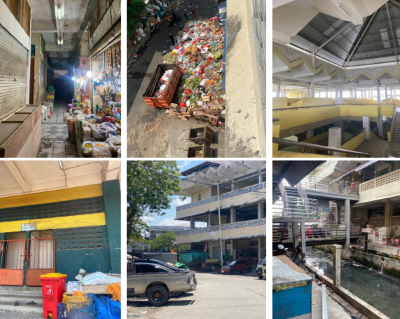Evaluation and Implementation of SNI 8152:2021, Smart Living and Smart Environment at Pandansari Market, Balikpapan City
DOI:
https://doi.org/10.24036/cived.v11i1.537Keywords:
Traditional Market, Revitalization, Smart Living, Smart EnvironmentAbstract
The conditions of traditional markets are dirty and irregular, supporting the fact that people prefer to shop in modern places. Nowadays, it needs to be realised that the only centre of trade is no longer in traditional markets, the increasing number of modern markets can make traditional markets need to survive in competition so as not to be eroded by the times. There is a need for innovation in traditional markets to advance the market economy so that traditional markets can compete with other markets. Pandansari Market is one of the markets located in Balikpapan City and has various problems related to the quality and physical and non-physical conditions of the market. The goal of this research is to find out the supporting factors of Pandansari Market revitalisation by using smart living approach and SNI 8152:2021 People's Market. Smart living will review in terms of harmony, health, and mobility. Smart environment will review in terms of infrastructure, protection, and energy. Meanwhile, SNI 8152:2021 Public Market will review in terms of general requirements, technical requirements, and management requirements. The method used in this writing is a qualitative method by conducting several stages of research. The results of this study are the supporting factors that make Pandansari Market necessary for revitalisation through a review of existing conditions and opinions from the UPT market, traders, and market visitors.
Downloads
References
Fahmi, S., Ardiansah dan Aprialdi, D. (2021), “Model Pengaturan Yang Efektif Terkait Pengelolaan Pasar Tradisional Di Indonesia”, Jurnal Hukum Samudra Keadilan, Vol. 16 No. 2, hal. 282–292, doi: 10.33059/jhsk.v16i2.4311.
Badan Pusat Statistik. (2018), “Profil Pasar Tradisional, Pusat Perbelanjaan, Dan Toko Modern”.
Noor, Z.Z. (2010), Manajemen Pemasaran, CV. Budi Utama, Indonesia.
Pramudiana, I.K.A.D. (2017), “Perubahan Perilaku Konsumtif Masyarakat dari Pasar Tradisional ke Pasar Modern”, hal. 35–43.
N. P. E. Stutiari dan S. Arka, “Dampak Revitalisasi Pasar Tradisionak Terhadap Pendapatan Pedagang Dan Tata Kelola Pasar Di Kabupaten Badung,” E-Jurnal EP Unud, vol. 8, no. 1, pp. 148-178, 2019.
D. Restu, N. Paramita, dan D. R. Mangeswuri, "Revitalisasi Pasar Tradisional Di Indonesia," J. Ekon. Kebijak. Publik, vol. 2, no. 1, pp. 313-336, 2021.
Lembaga Penelitian dan Pengabdian Masyarakat Institut Teknologi Kalimantan. (2022), “Smart City”, tersedia pada: https://lppm.itk.ac.id/fokus-riset/smart-city/deskripsi (diakses 30 Juni 2023).
Kemenkominfo. (2017), Buku Panduan Penyusunan Masterplan Smart City 2017 Gerakan Menuju 100 Smart City.
Pemerintah Kota Balikpapan. (2016), Peraturan Daerah Kota Balikpapan Nomor 3, Indonesia.

Downloads
Published
Issue
Section
License
Copyright (c) 2024 Ahmad Nashrullah, Oryza Lhara Sari, Umar Mustofa, Maryo Inri Pratama

This work is licensed under a Creative Commons Attribution 4.0 International License.






